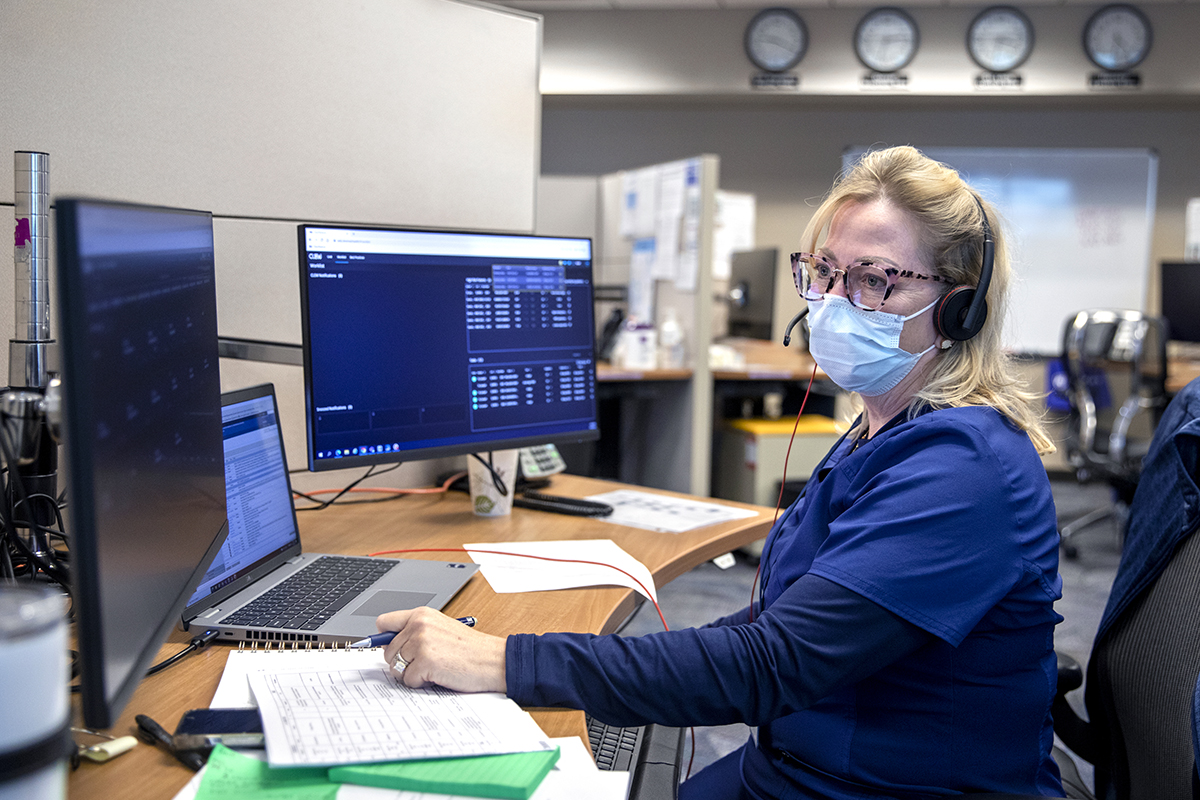Penn State Health expands virtual intensive care unit services for critical care patients Oct. 1

The virtual world is often associated with games, with the unreal.
But at Penn State Health, the virtual world is not only very real — it’s also a lifeline, a virtual safety net being extended throughout the health system.
Incorporating clinical expertise and experience gained from a partnership that began in 2016, Penn State Health assumed all virtual intensive care unit (vICU) operations internally Oct. 1. In a vICU, each intensive care patient is monitored around-the-clock by physicians, specially trained critical care nurses and other clinicians through high-resolution cameras, microphones and electronic medical devices.
“Knowing your loved one is under watchful eyes can be comforting, especially when that observation takes place 24/7,” said Chris LaCoe, vice president of virtual care for Penn State Health. “The vICU team members will work as partners with our bedside staff to provide an extra layer of care for critically ill patients.”
The service incorporates 186 beds at Penn State Health Milton S. Hershey Medical Center and Penn State Health St. Joseph Medical Center, sites of the prior partnership. The virtual service also is available at the new Penn State Health Lancaster Medical Center, which opened on Oct. 3. Starting dates for Penn State Health Holy Spirit Medical Center and Penn State Health Hampden Medical Center will be announced soon.
Enhancing critical care
Penn State Health’s virtual ICU Center is an expansion of Penn State Health’s existing critical care services and is designed to support the bedside clinical team, improving patient outcomes and overall quality of care. On-site physicians will remain the primary decision-makers for a patient’s care.
“The virtual intensivist allows Penn State Health to provide exceptional care to our sickest patients irrespective of geography,” said Dr. Will Hazard, medical director for the vICU Center. “This system provides the platform by which we will more effectively disseminate the expertise of our clinicians throughout the regions that we serve.”
Patient-centered partnership
Nursing team members in the vICU will work collaboratively with local care teams to provide the following services to bedside nursing staff:
- Assisting with new admissions documentation and patient transfers
- Assisting with patient pain reassessments
- Collaborating on quality initiatives and care bundle adherence
- Observing and documenting wound care, skin assessments and dressing changes
- Serving as a resource and mentor for new hires and new nurse graduates
Patient privacy
Patient privacy is incorporated within the vICU system. The virtual care team uses cameras only after notifying bedside visitors and staff with a “doorbell” chime. At all other times, the camera is off and nothing is ever recorded.
“Penn State Health is committed to putting our patients first across all aspects of our care,” LaCoe said. “This is especially vital in our critical care areas, where patients with complex medical conditions need the highest level of care. This partnership between the vICU and our Penn State Health medical staff will augment the excellent care we provide every day.”
If you're having trouble accessing this content, or would like it in another format, please email Penn State Health Marketing & Communications.
